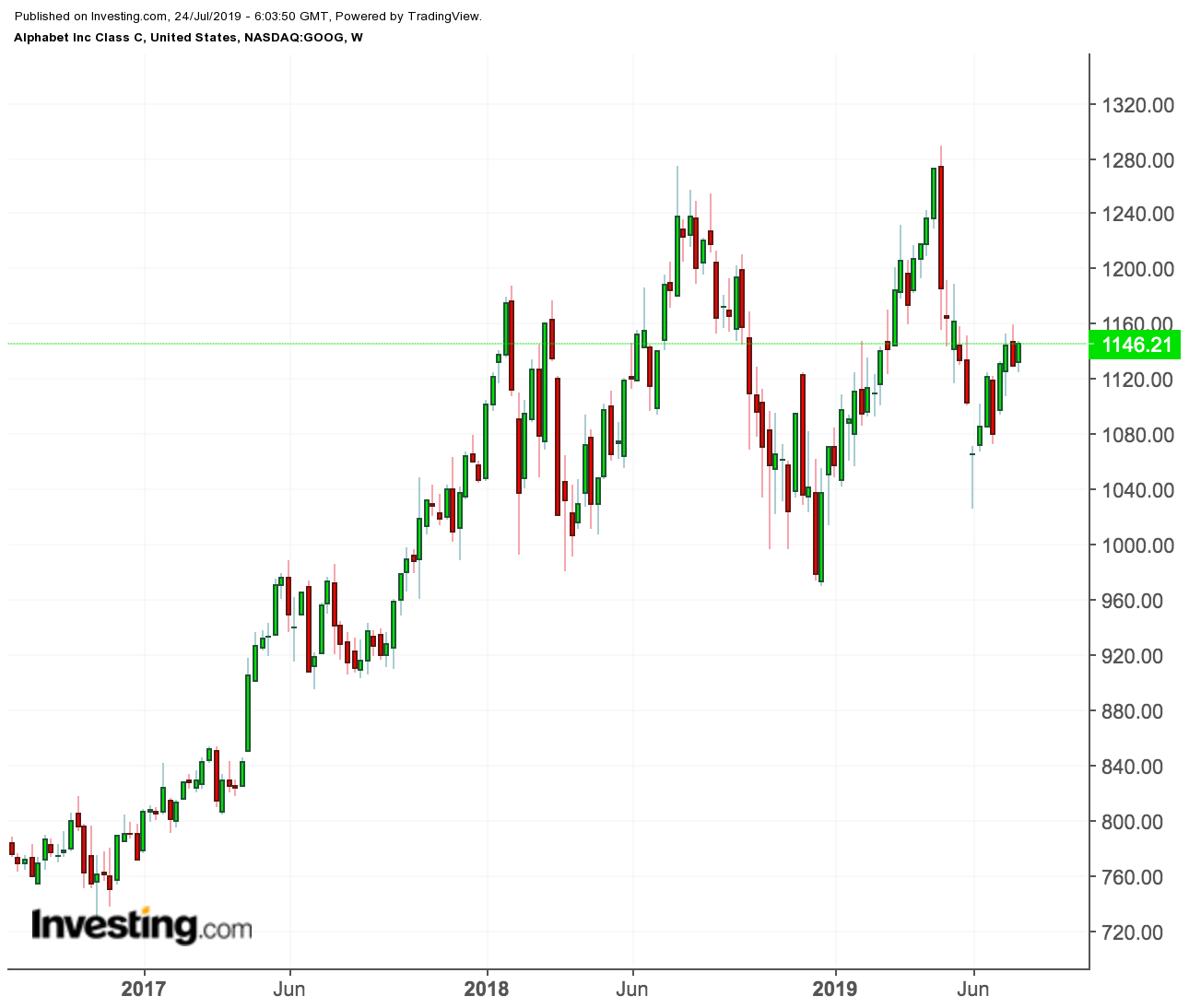- Reports Q2 2019 results on Thursday, July 25, after the close
- Revenue expectation: $38.16 billion
- EPS expectation: $11.1
There are clear signs that investors are nervous about Alphabet (NASDAQ:GOOGL), (NASDAQ:GOOG) these days. The shares of Google's parent have lagged behind other top technology companies over the past 12 months on concerns that its rapid growth is coming under pressure and the days of alluring profitability may be over.
Some investors fear that the search engine giant’s growth could be hitting a wall (as it did in 2015) after the disappointing Q1 report that missed analysts expectations and kept them guessing about the future. In that quarter, the company’s revenue from Google advertising rose about 15% from a year earlier, which was the slowest growth rate by that measure since late 2015.

Google’s advertising revenue is expected to grow 16% this year compared with 22% in 2018, according to the latest consensus projections from FactSet. For the second quarter, analysts project advertising revenue of $32.4 billion, up 15% from the same period last year.
In this negative backdrop, Google shares have been the worst-performer so far this year among U.S. tech companies valued above $100 billion. The shares are down more than 10% since its last earnings report, with Class 'A' shares closing yesterday at $1,148.05 and Class 'C' shares at $1,146.21.
Challenging Operating Environment
There is no doubt the operating environment for companies that run the largest social media platforms is becoming challenging. For Google, investors are keen to know about the status of its FTC settlement over child privacy on YouTube, as well as the possibility of an antitrust investigation into the company by the Department of Justice.
The biggest drag on the value of Google shares, in our view, has been from these regulatory probes instituted after the social media companies were accused of manipulating consumer data to their advantage, failing to stop the misuse of their platforms, and engaging in monopolistic practices that stifle competition.
If you take away these political and regulatory risks, we don’t think Google’s core advertising business is under threat. One quarter miss, in our view, shouldn’t detract from Google’s impressive growth record.
Google has maintained unopposed leadership in online search worldwide for nearly a decade. It controls 92% of search, with the next largest competitor, Microsoft’s Bing, drawing only 2.5%. That massive economic moat isn’t going away anytime soon, and it should continue to keep Alphabet’s cash-generating engine humming.
Bottom Line
Alphabet continues to be a great success story in the technology space. The company is successfully navigating the new privacy rules in Europe that seem to have had a limited impact on its ad business there. As well, its spending on new areas of digital economy, such as cloud computing and driverless cars, has positioned it to diversify revenue beyond its digital ad business.
That being said, Google shares will remain under pressure in the short-run due to regulatory threats. For that reason, they don’t present a compelling buying opportunity as of yet. Investors would be better off waiting on the sidelines.
